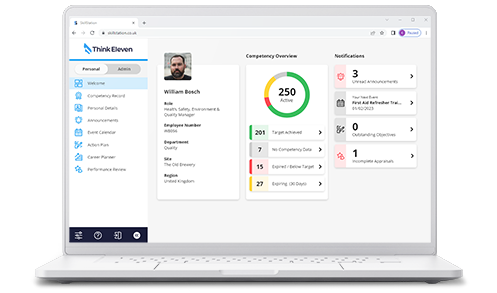Conducting Pharmacokinetic and Pharmacodynamic Studies (PKPD02) eLearning Course
Learning Objective
This module extends the learner’s understanding of pharmacokinetic and pharmacodynamic studies from the basics described in our companion module PKPD01, An Introduction to Pharmacokinetics and Pharmacodynamics in Drug Development and Registration. It provides detail on a variety of aspects of such studies: design, sampling, data analysis, research in special populations, and bioequivalence testing.
Who will benefit from this module?
Pharmacologists, nonclinical researchers, clinical researchers, regulatory affairs staff, and others who contribute to drug development and registration will benefit from this module.
Learning Objectives
- Summarise the advantages, and how to counteract the main weakness, of the core design of choice for many pharmacokinetic and pharmacodynamic studies
- Adopt good sampling practice
- Discuss non-compartmental and compartmental data analysis
- Describe the rationale and characteristics of studies in special populations
- Describe how to carry out bioequivalence testing
Module Outline
Module overview - An outline of the module’s scope and objectives, and notes on terminology.
Study design - In this session we discuss the core design of choice for many PK and PD studies: crossover. We outline its advantages and how to counteract an important weakness, which is the carry-over effect.
Sampling practice and outcomes - Arguably the most important aspect of the design of a PK or PD study is the sampling schedule. How many samples should be taken per subject and at which time points after dosing? Choice of these factors is crucial in minimising bias and maximising the precision of results. In this session we explain principles of good practice in sampling.
Data analysis - In this session, after introducing the principal pharmacokinetic parameters, we describe the PK and PK/PD characteristics of each drug administration route. We discuss the different medical-scientific questions to be addressed by PK/PD research for the different routes.
Special populations - Drug development entails research not only into the target population as a whole but into sub-populations with a common demographic or health characteristic that may produce treatment outcomes that differ significantly from the average. In this session we discuss such special populations and how they are studied.
Generics and bioequivalence - Licensing of generic drugs is an area in which pharmacokinetic studies constitute the prime determining factor. In the great majority of cases the test that determines the licensing of a generic drug is a comparison of its plasma concentration–time course with that of the product it copies – a bioequivalence test – to assess whether they are sufficiently similar. In this session we describe how to carry out bioequivalence testing.
Assessment - Multiple-choice mastery assessment.
This course has a minimum of 25 learner registrations for us to provide a quotation.
Request a Quotation- Language
- UK
- Date last updated
- 7/4/2025
- Duration
- 1 Hour 30 Minutes
- Suitable Devices
-
- PC
- Tablet
- Audio is Required
-
- Optional
- Includes Video
-
- No
- Downloadable Resources
-
- Factsheets
- Linked within Course
- Transcripts
- Completion Criteria
-
- Complete all modules
- Multiple Choice Assessment
- Pass Mark
-
- 75% pass mark required
- Course Technology
-
- HTML5
- SCORM 1.2
- Can be customised
-
- Available at an Additional Cost
- Accreditation or Endorsements
-
- CPD
- Languages
-
- English
